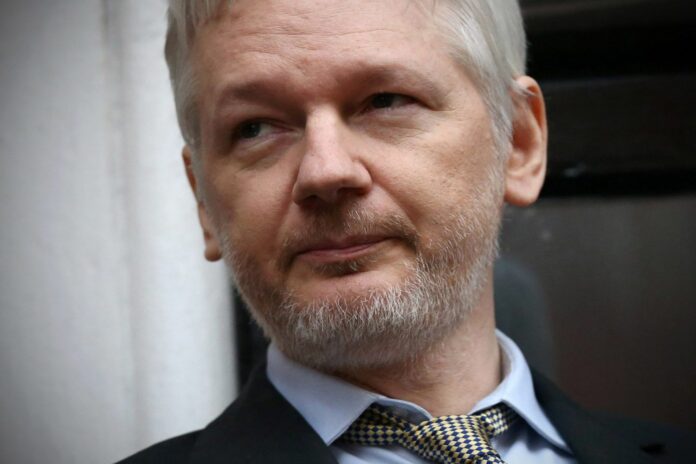Versió en català (English version, below)
És el primer cop que escric sobre Julian Assange després de la mort de John Pilger. I és que no puc deixar de pensar en tots dos, ara que el dia 20 i 21 de febrer se celebrarà la vista on es decidirà el futur d’Assange de cara a una possible extradició definitiva als Estats Units o la possibilitat de poder seguir apel·lant per la seva llibertat en els tribunals britànics. Amb John teníem la ferma convicció que es tractava d’un problema polític d’ordre moral. És a dir, l’aberrant situació de Julian Assange no tan sols pot abordar-se des de la perspectiva de la llibertat d’expressió –dret fonamental en les democràcies liberals–, és a dir, des de la seva òptica política; això és, l’extradició enderrocaria un dels fonaments cabdals del nostre ordenament social amb unes conseqüències que encara no han estat prou reconegudes. Sinó que, a més, la privació de llibertat d’en Julian –més de quatre anys en detenció administrativa a la presó d’alta seguretat de Belmarsh i gairebé set anys exiliat a l’ambaixada equatoriana– apunten a la idea moral de clar d’intent de destrucció de l’ésser humà que és en Julian. El seu càstig –en absolut justificat– no té pas res a veure amb la justícia, atès que conculca la noció mateixa de dignitat humana.
John i jo –ens havíem escrit i donat suport en la distància de l’email– compartíem aquesta diagnosi. I ara l’absència de John recalca si cal encara més la soledat d’Assange en aquest moment tan crític i dramàtic. Jo, em disculpareu, ja no penso només en termes de llibertat d’expressió i de violació de drets –ho faig, és clar que sí–. Però, sobretot, penso en l’home torturat que viu una experiència de dolor que hauria d’afectar qualsevol cor que es volgués sensible. Per això la justícia és cega, però aquest és el problema: una ceguesa que impedeix de valorar els seus errors fins a extrems injustificables. El paper dels dos jutges el pròxim febrer és fonamental en relació amb la preservació de l’estat de dret a UK –o el que queda d’ell en un país que té la intenció de deportar immigrants a Ruanda–. Però és, sobretot, una qüestió moral –com apuntava al començament de l’article–, perquè no hi ha cap raó perquè Julian estigui empresonat –com a membre d’Amnistia Internacional sempre he dit que la detenció administrativa (detenció sense cap càrrec) és una violació flagrant del dret internacional– i perquè és el moment per tal que Julian torni a casa, a Austràlia, amb la seva família, i pugui recuperar definitivament una vida que li volen robar. Això és el que John voldria. Això és el que tots volem.
ENGLISH VERSION
This is the first time I am writing about Julian Assange after the death of John Pilger. And I can’t stop thinking about both, now that on February 20 and 21 will be held the hearing where Assange’s future will be decided in view of a possible definitive extradition to the United States as well as the possibility of being still able to appeal fighting for his freedom in British courts. John and I were firmly convinced that Julian case was a political problem of a moral nature. This is to say, the aberrant situation of Assange case cannot only be approached from the perspective of freedom of expression –a fundamental right in liberal democracies– that is, from its political point of view because extradition would overthrow one of the key foundations of our social order with consequences that have not yet been sufficiently recognized. In addition of that, Julian’s deprivation of liberty –more than four years in administrative detention in Belmarsh high security prison and almost seven years exiled in the Ecuadorian embassy– point to the moral idea of a clear attempt to destroy the human being that is Julian. His punishment -absolutely unjustified- has nothing to do with justice, given that it violates the very notion of human dignity.
John and I –we had written and supported each other through the distance of the email– shared this diagnosis. And now, John’s absence emphasizes even more Assange’s loneliness at this critical and dramatic moment. You’ll excuse me, but I no longer think only in terms of freedom of expression and violation of rights – I do, of course I do -. But, above all, I think of the tortured man who lives an experience of pain that should affect any heart that wants to be sensitive. That’s why justice is blind, but that’s the problem: a blindness that prevents them from valuing their mistakes to unjustifiable extremes. The role of the two judges next February is fundamental in relation to the preservation of the rule of law in the UK – or what remains of it in a country that intends to deport migrants to Rwanda. But it is, above all, a moral issue –as I pointed out at the beginning of the article– because there is no reason for Julian to be imprisoned –as a member of Amnesty International I always said that administrative detention (without any charge) is a flagrant violation of international law– and because it is time for Julian to return home, to Australia, with his family, and be able to definitively recover a life that they want to steal from him. That’s what John would want. This is what we all want.
Altres articles sobre Assange / My other articles on Assange (catalan / English)
Julian Assange, el llarg camí a la veritat / Julian Assange, the long way to the truth
Julian Assange. Veritat i justícia / Julian Assange. Truth and justice



